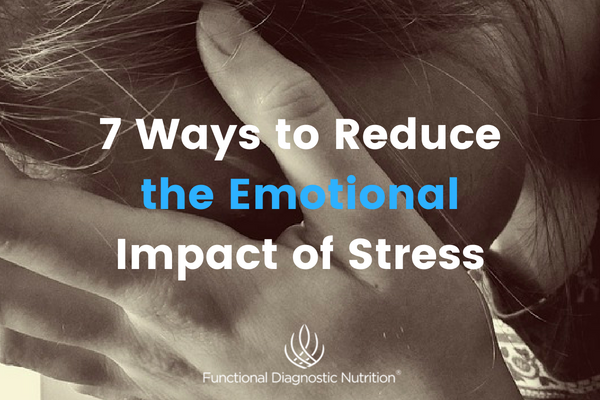Stress is a growing problem throughout the modern world as the lives of people get filled with more obligations and we are exposed to more external stimulation. Chronic stress can cause disease to manifest in the body, but it can also cause emotional distress and illness as well. Dealing with chronic stress on an ongoing basis can deplete the brain of neurotransmitters, which are the chemicals that allow us to feel good and help to keep our emotions on an even keel.
There are many ways that your emotions can be impacted by excess stress in your life. The symptoms that can occur from an overabundance of stress can be debilitating to those who experience them.
Those symptoms include:
- Depression
- Mood swings that occur frequently or that are extreme.
- Excessive anxiety
- Panic Attacks
- Worry
- Irritability
- Nervousness
- Anger
- Hostility
- Resentment
- Frustration
- Guilt
- Insecurity
- Restlessness
- Sadness
- Lethargy
- Pessimism
- Excessive negativity
- Changes in appetite-either increased or decreased
- Insomnia
- Nightmares or night panics
- Forgetfulness
- Trouble concentrating
- Problems learning and retaining new information
- Racing thoughts
- Increased confusion
- Lack of organization
- Inability to make decisions
- Feeling overwhelmed or burned out
- Crying spells
- Loneliness
- Feeling hopeless
- Feeling worthless
- Crying spells
- Suicidal thoughts
The symptoms outlined here, can have a significant impact on the quality of life for those who struggle with them. If ongoing stress is not dealt with, symptoms will continue to escalate until the individual suffering will no longer be able to function on a day-to-day basis. It is best to deal with stress when symptoms are still at a mild to moderate level, and there are things that can be done to reduce the stress easily, and begin to reverse any symptoms that may be occurring.
Some of the things that you can do to help improve emotional or mood issues that result from stress are:
- Exercise: Getting light to moderate exercise helps to release endorphins, dopamine and serotonin in the brain. These chemicals are the natural, feel good, stress relievers, and anti-depressants. It can take as little as 15 minutes for these chemicals to be released, but it is best to try and get at least 30 minutes of exercise for the best benefits.
- Food: One of the best foods for mood is animal protein which contains the full spectrum of amino acids that are used to produce the neurotransmitters that you need to feel better. It is best to choose pasture raised and grass fed, where possible because this type of animal protein has a higher concentration of Omega 3 fatty acids.
- Essential fatty acids: Studies have been done that show that consumption of Omega 3 fatty acids help those who struggle with depression. The standard western diet today is high in Omega 6 fatty acids, but lack Omega 3s in that the body needs. Omega 3 fatty acids are found in fish oils and flaxseed oil, and can be taken daily.
- Laughter: Most people love to laugh, and laughing is one of the most fun ways to reduce stress. When you laugh, it releases endorphins which will reduce your stress and help you to feel good. So get online, watch some funny videos, funny movies or find a local laughter yoga class where you can have fun reducing stress!
- Meditation: Meditation typically involves deep breathing as well as a period of quiet focus. This combination is great for reducing stress and helping you to feel more calm and balanced. Those who practice meditation regularly are able to handle stressful situations more easily than those who do not.
- Supplementation: There are certain vitamins, minerals, amino acids and herbs that are really great for reducing stress.
- Herbs: Herbs that possess nervine properties are great for reducing stress. These can easily be made into a tea or used in tincture form. Some of the best herbs for stress are lemon balm, oat straw, chamomile, lavender, St. John’s Wort, Valerian, and skullcap. Herbs are gentle to use, but be sure to check for any contraindications if you are using medications.
Working with a FDN Practitioner can help you to discover the best ways to reduce stress and what supplements you can use to bring your body back into balance so you feel better. Contact a FDN Practitioner today so that you can be on the road to feeling better soon!








